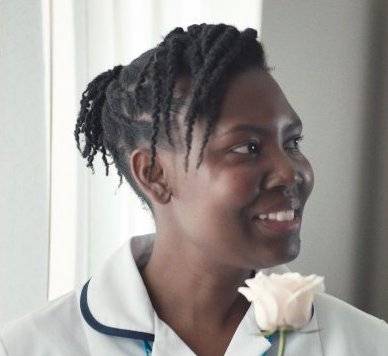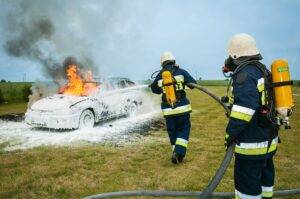Now in its third year, the ‘We are the NHS’ campaign is back to celebrate the extraordinary work of NHS staff in over 350 roles including nurses, allied health professionals and healthcare support workers and to inspire a new cohort to consider a career in the health service.
Recruitment for the NHS has never been more vital. The professionalism and dedication staff have shown throughout the pandemic has generated unprecedented interest in joining the NHS while the demands of contending with coronavirus while keeping other services running means recruitment has never been more crucial. ‘We are the NHS’ shines a light on some of the most in-demand roles in the NHS; all varied, exciting and challenging in equal measures.
A vital part of the NHS family – Allied Health Professionals – make a significant difference to the lives of thousands every day. They provide treatment and help rehabilitate adults and children who are ill, have disabilities or special needs.
Many people may not be aware of the different Allied Health Professional roles available across the NHS, these include: occupational therapists, speech and language therapists, orthoptists, podiatrists, paramedics, physiotherapists, music therapists and radiographers to name a few.
Registered and a Senior Community Physiotherapist in Hertfordshire Community NHS Trust, Justine Musiime,recounts her inspiring journey and hopes to motivate others from the Black community to consider a career with the Allied Health Professions within the NHS.
“A career in physiotherapy was the best decision I ever made. It is such a fulfilling and rewarding role, interesting, varied and broad in so many ways, with much scope for career progression. Communities I’ve found myself in, both in Uganda and in the UK have been proud of my achievements and valued my knowledge and skills. I feel very privileged, grateful and respected as a professional.”
Talking about the wide-ranging opportunities available in the physiotherapy discipline, Justine says:
“As a physiotherapist, there are several areas one can specialise in such as paediatrics, sports, orthopaedics, oncology, musculoskeletal or respiratory physiotherapy, to name but a few. I chose community physiotherapy where I mainly work with older people. My career options are still broad, with opportunities to remain clinical or branch into teaching, research or leadership and management. I am currently the East of England Representative for AGILE, the professional network for chartered physiotherapists working with older people.
If you don’t think physio is for you but you are keen to explore a career within the NHS, I’d encourage you to explore the wide –range of career options within the Allied Health Professions. Each role has a distinct purpose but they’re all integral to the wider goal of making a difference to people’s lives.”
Reflecting on career progression as a Black African within the NHS, Justine says: “The inclusion and diversity agenda is helping to break down barriers and individuals from minority ethnic backgrounds are increasingly able to progress. I have every faith that with the right support, hard work and self-belief; you can soar within the NHS.”
Justine continues: “There is a real need for more Allied Health Professionals from diverse backgrounds. Not only would this better reflect the population we serve, it can also attract a more diverse workforce.”
This year, candidates for university courses relevant to Allied Health Professions roles have access to a support system to guide them step by step through the application process, alongside tailored support. Furthermore, annual payments of £5,000 to £8,000 are available to help studies.
Search ‘NHS Careers’ to find out more



